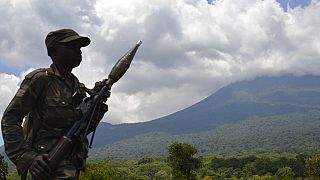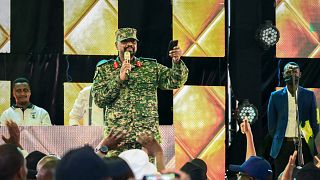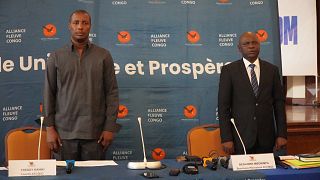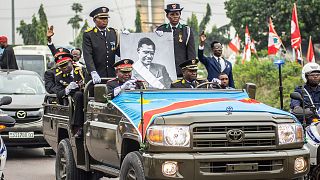Democratic Republic Of Congo
The 9th Games of La Francophonie, a meeting place for some 3,000 young athletes and artists from around thirty countries, opens on Friday in Kinshasa, a real challenge for a state deemed chaotic, at war in its eastern part and in the year electoral.
Lately, the government and the organizing committee have multiplied field visits, to silence the detractors and show that the Democratic Republic of Congo would be there.
Awarded in 2019 to the DRC, these games should have taken place in 2021, four years after those of Abidjan. But they were postponed because of the Covid-19 pandemic, then again in 2022 because nothing was ready.
Because to welcome the athletes, the country, notoriously devoid of infrastructure, had to spend tens of millions of dollars to rehabilitate or build new facilities in Kinshasa, the largest French-speaking city in the world, with more than 15 million inhabitants.
These expenses were added to the war effort against armed groups and rebellions in the east of the country, in particular against the "M23" which, supported by Rwanda, has occupied large swaths of territory since last year.
And the Congolese State must also ensure the financing of the elections planned for the end of the year, in a tense climate and weighed down by the assassination of an opponent, on July 13 in Kinshasa.
The brand new sports infrastructure is an investment for Congolese youth, justifies the government. The same goes for the buildings on the university campus renovated to house the participants, for the new ambulances that will then go to different health structures or for the equipment provided to official television.
These are the games of "hope and solidarity", repeat the authorities who, rather than the daily difficulties of the Congolese, highlight their hospitality and the joyful sides of life in Kinshasa, "capital of rumba and elegance".
It is about changing the image of the DRC, often associated with "war and violence", government spokesman Patrick Muyaya said again on Wednesday during a press conference at the People's Palace. seat of Parliament.
This long-planned event started more than two hours late, a sign, according to comments from participants, that the magic of La Francophonie has not yet worked on certain Congolese habits.
- Security -
A few weeks ago, preparations seemed very late and doubts remained about the holding of the games.
In June, several countries decided to reduce their participation or gave up altogether, like Quebec, which cited security and health reasons for not sending athletes or artists to Kinshasa. The Wallonia-Brussels Federation sends artists but not sportsmen and France will not be in the running in athletics or cycling.
"Our first concern was to think about the safety of the participants," insisted the director of the national games committee, Isidore Kwandja, on Wednesday.
Some 4,500 police officers will be deployed in the city, a private company is responsible for the security of the playgrounds and the Republican Guard is called in as reinforcements.
In view of the execrable relations between the DRC and Rwanda, the presence on Friday evening at the opening ceremony of the Secretary General of the International Organization of La Francophonie (OIF), the former Rwandan Minister of Foreign Affairs Louise Mushikiwabo, is debated.
On Monday, the government had announced her presence, but her spokesperson said the next day that she would not come because she had not been invited, which the OIF administrator repeated on Wednesday. , Caroline St-Hilaire, who replaces her in Kinshasa.
“The Secretary General deemed it appropriate not to shed light on her presence at the opening of the games,” added Ms. St-Hilaire.
Until August 6, the Games of La Francophonie, in which young people aged 18 to 35 participate, will give rise to nine sports competitions and 11 cultural competitions.
The sports are men's football (under 20), women's basketball (18-25), athletics and para-athletics, road cycling, free and African wrestling, judo and table tennis. The cultural program includes painting, sculpture and photography, song, dance, digital creation, literature, storytelling, ball juggling, giant puppets and hip hop.











02:10
Congo-Rwanda deal: Uncertainty over whether the hostilities will end
02:13
Congo and Rwanda sign a US-mediated peace deal aimed at ending decades of bloody conflict
00:54
African Human Rights court says it can hear case brought by DRC against Rwanda
01:20
Somalia launches Centennial Vision 2060 roadmap for 'peace, prospertity and progress'
01:08
DRC extends ban on cobalt export for another three months
01:01
Rwandan opposition leader Ingabire arrested in connection with alleged plot to overthrow president